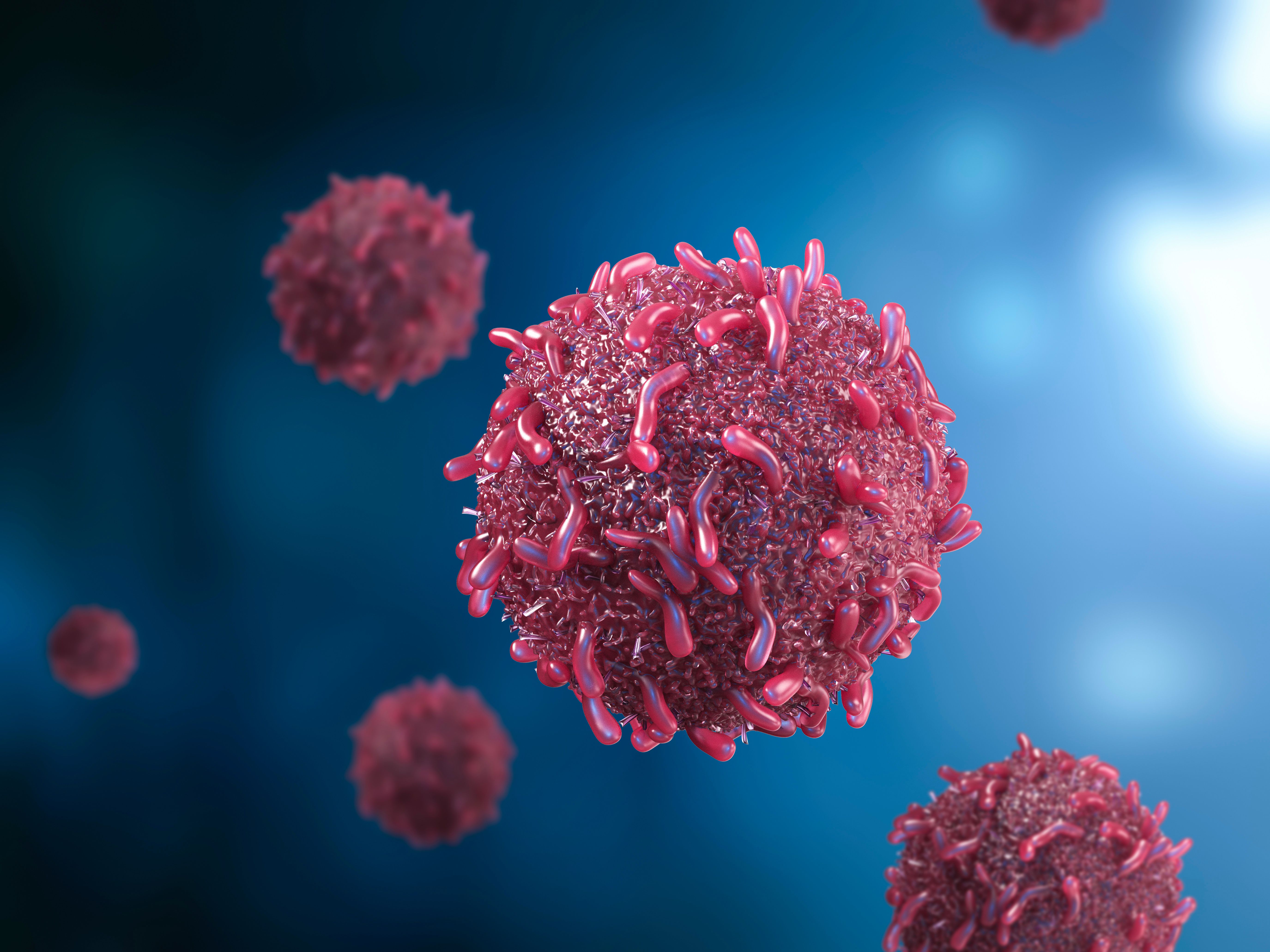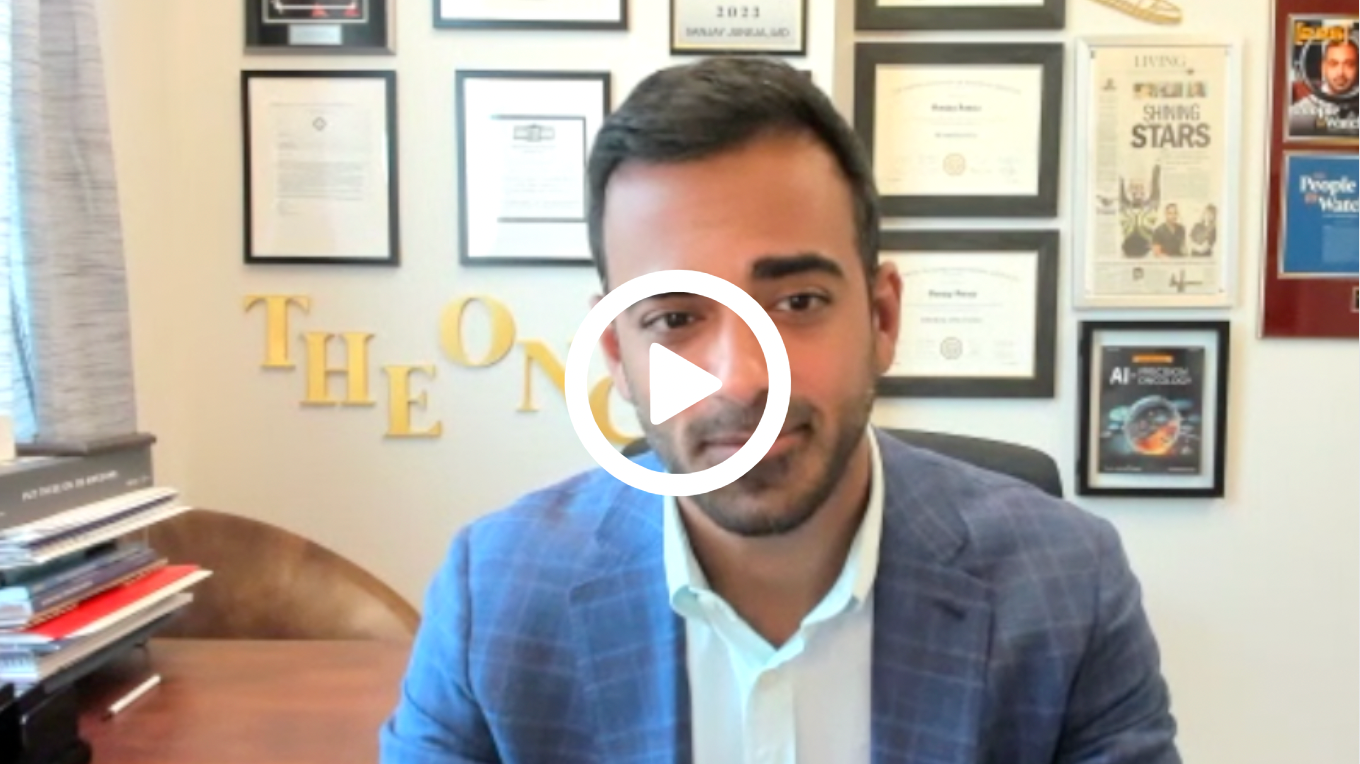Oncology Icons: Recognizing Key Innovators in Community Oncology Research
Targeted Oncology recently honored 3 outstanding oncologists who have been influential in the community oncology space for years.
Cancer cells | Image Credit: © phonlamaiphoto - www.stock.adobe.com

In June 2023, the Oncology Icons award program was created by Targeted Oncology with the goal of celebrating the remarkable achievements of community oncologists along with their groundbreaking work in community oncology research.
This program honors their achievements and allows for collaboration and sharing of knowledge within the oncology community. Each quarter, Targeted Oncology will recognize the exceptional achievements of community oncologists who embody leadership in their workplace and constantly inspire other professionals.
Nominations for the Oncology Icons are accepted on a rolling basis throughout the year. The first honorees were recognized in July 2023. They are 3 outstanding oncologists who have been influential in the community oncology space for years.
The Oncology Icons for Q2 2023 are Manmeet S. Ahluwalia, MD, MBA, FASCO; Tara Graff, DO, MS; and J. Thaddeus Beck, MD, FACP.
About the Oncology Icons
Manmeet S. Ahluwalia, MD, MBA, FASCO: Ahluwalia is the chief scientific officer, chief of medical oncology, deputy director, and the Fernandez Family Endowed Chair at Miami Cancer Institute of Baptist Health South Florida. He also serves as the chief scientific officer for Lynn Cancer Institute in Boca Raton, Florida, and as a professor of translational medicine at Herbert Wertheim College of Medicine of Florida International University.
His connection with oncology began early on in his childhood in India. “As a 12-year-old, I struggled seeing my maternal grandmother’s battle in a resource-limited setting with cervical cancer, an entirely preventable disease,” he told Targeted Therapies in Oncology in an interview. This pushed him to pursue clinical training in the US, after finishing medical school in India and a research fellowship in Canada. He completed his residency at Cleveland Clinic Health System and a hematology-oncology fellowship at Roswell Park Cancer Institute.
An aspiration to become a clinician-scientist led him to the Cleveland Clinic, Ohio, in 2009. He rapidly rose to become the Dean and Diane Miller Family Endowed Chair in Neuro-Oncology and the head of operations at Cleveland Clinic’s Burkhardt Brain Tumor and Neuro-Oncology Center in 2015. “I was very fortunate to work with a team of exceptional neuro-oncologists, scientists, radiation oncologists, neurosurgeons, medical oncologists, and support staff, who helped develop one of the largest brain tumor clinical trials programs in the world,” he said.
In 2021, he was recruited to Miami Cancer Institute (MCI). MCI is the third and presently Florida’s only member of Memorial Sloan Kettering Cancer Alliance.
Along with clinical and administrative responsibilities, Ahluwalia serves as the co-principal investigator (PI) on a $3.9 million NIH R01-funded grant on artificial intelligence-based radiomics in glioblastoma. He is also the clinical trial leader on the $10.4 million PO1 grant focusing on glioblastoma gender-specific differences (Cosine Consortium). He is also the PI on ongoing paradigm-changing, FDA-approval-intent studies on blood-brain barrier disruptionthrough Low-Intensity Focused Ultrasound for primary brain tumors (LIBERATE; NCT03535350) and brain metastases (LIMITLESS; NCT05317858). He serves as the chair of the US National Cancer Institute (NCI) South-West Oncology Group (SWOG) Brain Tumor Working Group.
For over a decade, Ahluwalia has led numerous clinical trials with novel agents for patients with primary brain tumors and brain metastases, resulting in 250+ peer-reviewed research publications. He designed and led the initial studies on combining immunotherapy/targeted therapy and radiosurgery in brain metastases. He co-led the first-in-man trial of Laser Interstitial Thermal Therapy (LITT) for primary brain tumors, which led to US FDA approval. He also designed and led the LASSR trial exploring LITT for brain metastases and radiation necrosis. He led trial of SurVaxM (a vaccine targeting survivin) combined with temozolomide for glioblastoma, recently published in the Journal of Clinical Oncology that is currently being evaluated in a phase 2/3 trial for potential FDA registration.
“Patients with brain malignancies deserve better, and we must work tirelessly to advance novel therapies for them”, Ahluwalia said.
Tara Graff, DO, MS: Graff is a hematologist/oncologist at Mission Cancer and Blood in Des Moines, Iowa, where she also serves as the physician champion and lead for the Mission Cancer ClinicalTrials Program. She began her journey in oncology research at Loyola University Chicago before attending medical school and continued with this passion at the Medical College of Wisconsin (MCW) in Milwaukee, WI.
Although she originally had plans to spend her career at MCW’s Froedtert Memorial Lutheran Hospital, life had other plans. Graff followed her husband to Iowa to join Mission Cancer + Blood.
“It’s amazing how quickly one has to adapt to their environment. Suddenly I was seeing different cancers and things I didn’t really think about a lot, and that was interesting,” Graff told Targeted Oncology.
Because she started out as a basic scientist, Graff’s heart has always been in research. She set out to bring research to the community oncology space at her institution.
“I needed to figure out how to build that niche in a community oncology world, which is not something you see every day, because community is community, and academia is where the research is done. But that isn’t true because there are a lot of community groups that do research. So, I decided to make that my goal,” Graff said.
Today, she spearheads a community-based clinical trial program at Mission Cancer + Blood, which collaborates with various organizations to conduct more than 100 research studies and clinical trials on a national and international scale. The program plays a vital role in providing access to the latest therapies to underserved patients, underscoring the importance of community-based research. Graff also has contributed to many original articles in the fields of oncology and hematology.
“I plan to keep growing this program. My wish is that we involve more partners in these trials so we can continue to conduct large scale trials that are not typically available in the community setting,” Graff said.
J. Thaddeus Beck, MD, FACP: A founding member of Highlands Oncology in Rogers, Arkansas, Beck graduated from the University of Arkansas for Medical Sciences in Little Rock in 1985. He also completed his residency in internal medicine there.
Beck was elected a Fellow of the American College of Physicians in 2002. Through his fellowship, residency, and position on junior faculty, Beck found a passion for patient care and clinical research.
“I wanted to be the best oncologist, that’s it. I had no idea where it was going to take me,” Beck said. Where that took him was to Highlands Oncology, where he was recruited to start a clinical trials program.
As medical director, Dr Beck has created one of the largest and most successful community-based clinical trial programs in the country. At any given time, he oversees 120 active clinical trials, 30 physicians, advance practice providers, and data managers. Even with this load, Dr Beck still takes the time to sit with his patients, draw up a plan, and ensure that they understand and are prepared for the journey ahead. He uses his expertise and years of experience to handpick clinical trials he believes will be relevant and helpful for the patients in Northwest Arkansas. Highlands Oncology receives patients from around the world who travel here to participate in clinical trials where phase 1 to 3 therapies are available.
Based on the great work done in the program, Beck now has the goal of creating a radioligand therapy research program to study radioisotopes that will be used to treat cancer. Beck notes that the plan is to install a cyclotron to help create new isotopes for imaging and therapeutics. This will aid clinicians in developing more personalized cancer vaccines. Beck also hopes to build upon the research that has been done over previous decades to provide better outcomes for patients with breast cancer.
“I hope we will continue our march forward in reducing the incidence of breast cancer and the death rates of breast cancer to build on the progress we’ve made in the past 20 years,” he said.
The groundbreaking research and impact that Ahluwalia, Graff, and Beck have had in the field of oncology serve as a testament to the dedication of community oncologists and their role in advancing care and treatment for patients. Through the launch of the Oncology Icons award program, Targeted Oncology is providing a platform to recognize inspiring clinicians who continue to work relentlessly to improve the lives of their patients.
The nomination window remains open for the upcoming awards, and organizations and key opinion leaders are encouraged to nominate community oncologists who are making significant strides in the field.
Maen Hussein: ‘Every Success Motivates Us to Do Even Better’
November 16th 2023In an interview with Targeted Oncology, Maen Hussein, MD, a Q3 2023 Oncology Icons honoree, discusses his path to the community oncology setting and highlights upcoming trends in oncology he feels will improve patient outcomes.
Read More





